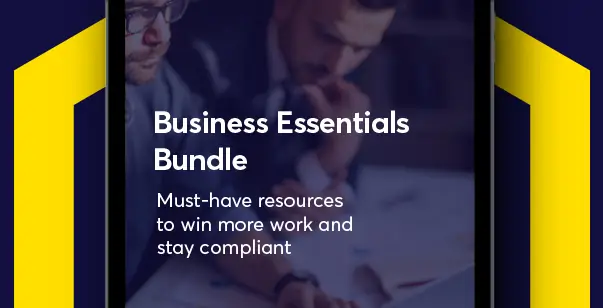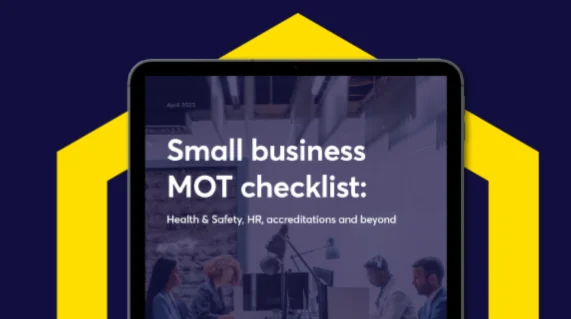Can an employee work two jobs at the same time in the UK? In short, yes. In today’s ‘flexible economy,’ it’s becoming increasingly common for employees to have secondary employment, but there are a few things to consider.
In this blog post, we’ll cover the implications of having a second job and the employer’s rights to having an employee work a second job in the UK which may be a conflict of interest.
Legal implications of working two jobs in the UK
It’s not illegal for employees to work two jobs in the UK. However, there are legal implications to consider. Employees have a duty of trust and confidence to their employer, meaning they shouldn’t work in a way that creates a conflict of interest, such as working for a competitor.
Employment contracts often include clauses restricting secondary employment to protect the employer’s business interests. These clauses must be reasonable and enforceable, taking into account the employee’s role and the nature of the industry. Employers must also adhere to the Working Time Regulations, which limit the total hours an employee can work across all jobs. We’ll cover all of these in more detail
What is secondary employment?
Secondary employment, often called a “second job”, refers to any work undertaken by an employee in addition to their primary employment. This can include a wide range of activities, from part-time jobs in retail or hospitality to freelance work, consulting, or running a small business.
The key characteristic of secondary employment is that it is separate from the employee’s main job and typically involves a different employer or the employee working independently. While secondary employment can provide additional income, skills development, and flexibility, it’s essential for both employees and employers to understand the potential implications and ensure it doesn’t conflict with any existing employment contracts or legal obligations.
What issues arise when employees have two jobs?
In this era of the ‘flexible economy’ significant numbers of workers are likely to be working two jobs at the same time.
When employees juggle two jobs, it can lead to a variety of issues that impact both the employee and the employer. Here’s a breakdown of the key concerns:
For the employee:
- Increased stress and burnout: Balancing the demands of two jobs can be incredibly taxing, leading to exhaustion, decreased mental and physical health, and difficulty maintaining a work-life balance.
- Reduced performance: Fatigue and stress can have an impact on an employee’s concentration, productivity, and overall performance in both roles.
- Sleep deprivation: Working two jobs often means less time for sleep, which can negatively affect health, mood, and cognitive function.
- Conflicts in scheduling: Managing schedules between two employers can be challenging and may lead to missed shifts, appointments, or important personal commitments.
For the employer:
- Decreased productivity and engagement: Tired employees are less likely to be fully present and productive at work. They may also be less engaged in their tasks.
- Increased absenteeism: Employees may need to take more time off to manage the demands of both jobs or due to health issues arising from overwork.
- Safety concerns: Fatigue can increase the risk of accidents and injuries in the workplace, especially in roles that require physical labour or operate machinery.
- Conflicts of interest: If an employee works for a competitor or in a related field, there could be conflicts of interest regarding confidential information, client relationships, or business opportunities.
- Legal and regulatory compliance: Employers need to be mindful of working time regulations, especially when employees have multiple jobs. They also need to ensure they are meeting their obligations regarding health and safety.
Additional considerations:
- Impact on team dynamics: If an employee is constantly tired or preoccupied with their other job, it can affect team morale and collaboration.
- Difficulty in providing support: Employers may find it harder to support employees who are struggling with the demands of two jobs, as the root cause lies outside their workplace.
It’s important for both employees and employers to be aware of these potential issues and to communicate openly about any challenges that arise. Employers can play a role in supporting employees by being flexible, promoting work-life balance, and addressing any concerns proactively.
Conflict of interest working two jobs: legal considerations
Naturally, both jobs may be in a similar line of work or industry due to the skills, qualifications and contacts of the employee. All employees work under the implied contractual duty of trust and confidence towards his or her employer, yet many employees may ignore such a duty (or even be unaware that a conflict exists).
It’s therefore sensible to have a clause in your contracts of employment that prevents the employee from working for another employer where that employer may be in competition with your business.
Contract clauses
However, like all restrictive commitments, care must be taken to make sure that clauses like this don’t go further than necessary to protect the legitimate interests of your business and therefore each case should be assessed on its own merits.
For example, an absolute restriction on directors and senior employees may be reasonable whereas for junior or administrative employees it might be more appropriate to simply ask the employee to get your permission before taking up a second job, with a provision that permission will only be withheld with good reason.
Industry
The type of industry is also important, for example in the restaurant and retail industry customers are much more transient and therefore such restrictions are less likely to be necessary or reasonable.
Even where there is no direct conflict of interest, employees may display a preference to one job over another, perhaps due to the level of earnings, which could result in absence from work in order to carry out additional work in the higher paying job, and you should think about this possibility if the employee has a record of short term absences.
The Working Time Regulations and Health & Safety
The Working Time Regulations 1998 limit the workweek to 48 hours, and the UK government guidance clarifies that this limit applies to all jobs combined, not each job separately. To prevent violations, it’s a good idea to have employees sign an opt-out agreement.
If an employee doesn’t then you can reasonably limit their total hours of work to 48 each week taking into account the hours worked elsewhere, or alternatively ask that they reduce their working hours in their second job.
Employers should also be mindful of their more general Health & Safety obligations towards employees (and also other people affected by the work carried out) even if the employee works less than 48 hours a week.
If you think an employee’s second job creates a risk, you should address this yourself rather than assuming the employee will. It’s also a good idea to include a contract clause asking employees to disclose any other jobs, including the type of work and the hours they work.
Performance issues when employees work two jobs
Everyone has limited reserves of energy and concentration and second jobs will of course be an additional drain on these. If an employee’s performance is declining, address this quickly and check if their second job is a factor.
The employee might not admit that their second job is affecting their work, but if you have a good reason to think it is, you are within your rights to address that. Start with informal talks, but if the issue continues, formal actions like capability or disciplinary proceedings might be needed.
Finally, keep an open mind, second jobs are not necessarily negative; employees may develop new and useful skills or gain financial security which in turn reduces stress.
Get HR & Employment Law support from HS Direct
At HS Direct, we have a collection of services and documents to help your business with any Employment Law tasks. Our HR & Employment Law documents include full set employment contracts, and a range of other employment contracts, for whatever you may need. Our team are always available, contact us today to see how we can assist you!





